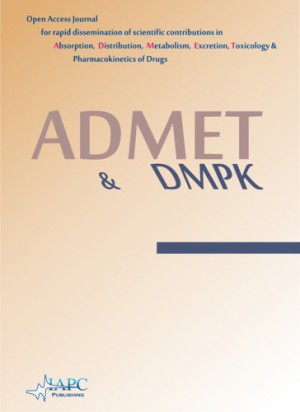
ADMET & DMPK
Yazarlar: Mauno Vihinen
Konular:-
DOI:10.5599/admet.831
Anahtar Kelimeler:-
Özet: Solubility is a fundamental protein property that has important connotations for therapeutics and use in diagnosis. Solubility of many proteins is low and affect heterologous overexpression of proteins, formulation of products and their stability. Two processes are related to soluble and solid phase relations. Solubility refers to the process where proteins have correctly folded structure, whereas aggregation is related to the formation of fibrils, oligomers or amorphous particles. Both processes are related to some diseases. Amyloid fibril formation is one of the characteristic features in several neurodegenerative diseases, but it is related to many other diseases, including cancers. Severe complex V deficiency and cataract are examples of diseases due to reduced protein solubility. Methods and approaches are described for prediction of protein solubility and aggregation, as well as predictions of consequences of amino acid substitutions. Finally, protein engineering solutions are discussed. Protein solubility can be increased, although such alterations are relatively rare and can lead to trade-off with some other properties. The aggregation prediction methods mainly aim to detect aggregation-prone sequence patches and then making them more soluble. The solubility predictors utilize a wide spectrum of features.
Dergi editörleri editör girişini kullanarak sisteme giriş yapabilirler. Editör girişi için tıklayınız.